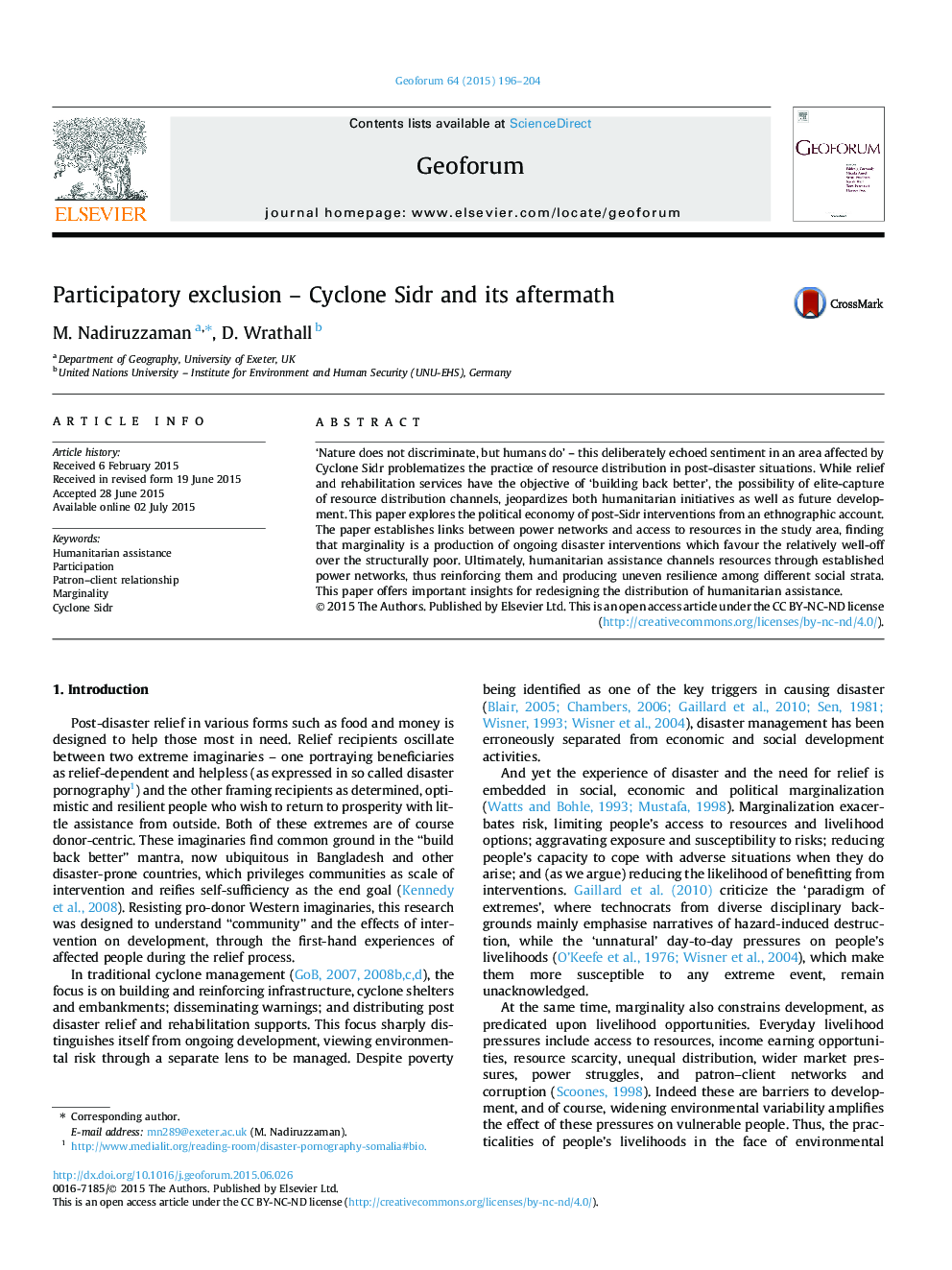| Article ID | Journal | Published Year | Pages | File Type |
|---|---|---|---|---|
| 5073682 | Geoforum | 2015 | 9 Pages |
â¢There is always a vested interest in resource distribution.â¢Marginality is one's relative distance from power network.â¢Traditional participatory approaches fail to break through existing power network.
'Nature does not discriminate, but humans do' - this deliberately echoed sentiment in an area affected by Cyclone Sidr problematizes the practice of resource distribution in post-disaster situations. While relief and rehabilitation services have the objective of 'building back better', the possibility of elite-capture of resource distribution channels, jeopardizes both humanitarian initiatives as well as future development. This paper explores the political economy of post-Sidr interventions from an ethnographic account. The paper establishes links between power networks and access to resources in the study area, finding that marginality is a production of ongoing disaster interventions which favour the relatively well-off over the structurally poor. Ultimately, humanitarian assistance channels resources through established power networks, thus reinforcing them and producing uneven resilience among different social strata. This paper offers important insights for redesigning the distribution of humanitarian assistance.
